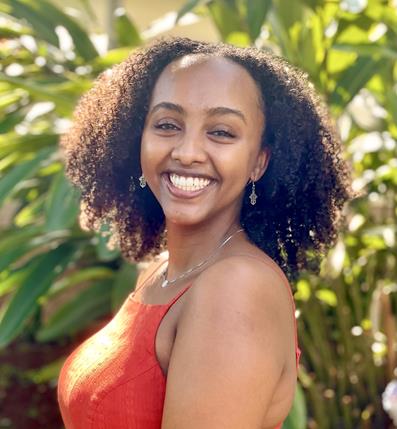
Princeton in Africa & Project Mercy

For nearly 24 years, Princeton in Africa has been sending Fellows to the African continent, to contribute to some of the most impactful organizations doing work in a wide variety of sectors- from Public & Community Health to Education & Youth Capacity Building to Community-level Development. We would like to share the story of our partnership with Project Mercy in Ethiopia from 2011-2014, and how it has impacted our Fellows today.
Project Mercy is a 501 (c) 3 non-profit organization working in Ethiopia, with an office in Fort Wayne, Indiana. They serve thousands of families, children and women in Ethiopia, having built a clinic, a primary school, a high school, a hospital, and a Health Science College. Project Mercy primarily works in two locations in Ethiopia: ChaCha and Yetebon.
Between 2011 and 2014, Princeton in Africa placed five Fellows with Project Mercy. There, our Fellows helped teach classes in biology, chemistry, economics, English and other subjects.
Heran Abiy, a current Fellow in the 2022-23 cohort, has a special connection with Project Mercy. Originally from Addis Ababa, Ethiopia, Heran grew up in Nairobi, Kenya. She is now a Fellow at the Kucetekela Foundation in Zambia, supporting their work as a Programs Coordinator. Before coming to Lusaka, she completed her Master’s degree from Clark University’s Department of International Development, Community, and Environment (IDCE) in Worcester, MA. Project Mercy was founded by her great-aunt and great-uncle, Marta and Deme. in 1977.
Heran describes:
“Following the Ethiopian Red Terror, also known as Qey Shibir after the overthrow of Emperor Haile Selassie in 1974 and the subsequent Ethiopian Civil War, hundreds of thousands of people were killed and became refugees. Including my family. After finding refuge in the USA, my great aunt and great uncle established Project Mercy, Inc., a 501 (c) 3 organization dedicated to providing emergency relief aid, educational assistance, shelter, food, healthcare, and refugee resettlement assistance and relocation help to African refugees in seven countries.
During my childhood, I would spend time with my aunt and uncle in Yetabon, learning about Project Mercy, from playing sports with the students, attending a few classes, learning how to milk cows, and learning about Project Mercy’s various initiatives. I would often see American students, young graduates, and fellows in Yetabon doing various volunteer activities, and on occasion, I would eat lunch and dinner with these student volunteers. As a child, I always wondered what brought them to Yetabon, Ethiopia – a rural village about 3 hours south of Addis Ababa, nestled in the highlands. I sometimes interacted with these American students in passing but did not know who they were and what they were doing in Yetabon. It never occurred to me that these students were Fellows, volunteers, and interns. As a child, I recall being surprised and a bit in awe, as to how these people traveled to Yetabon village, a rural location, where not many people spoke English.”
Heran discovered this connection PiAf had with her great aunt and uncle’s nonprofit organization after accepting her PiAf fellowship with the Kucetekela Foundation.
“My journey with Princeton in Africa spans many years before I even knew PiAf existed. A few months ago, during my PiAf orientation, I recall seeing an organization called Project Mercy, in Yetabon Ethiopia, listed as a former organization that Princeton in Africa had partnered with and sent Fellows to. I was in absolute shock to see this on the PiAf PowerPoint presentation during my orientation…Project Mercy is an NGO that has a special place in my heart and serves as a significant part of some of my early childhood memories.
Growing up, I would spend summer breaks and holidays with my family in Addis Ababa and up in the small village of Yetabon, at that very same organization that PiAf had listed on their orientation PowerPoint. It was during an email exchange with Program Director, Stephanie Leroy, that I realized Princeton in Africa was sending Fellows between 2011-2014 to Project Mercy! Just around the time I was there.
Many years down the line, perhaps serendipitously – my connection with Princeton in Africa comes back in a full circle. It’s funny to think that I am now also a Princeton in Africa Fellow doing similar work, as those fellows I had encountered and looked up to as a child during my visits to Project Mercy in Yetabon.”
At Princeton in Africa, we value how vast our network is, spanning across continents and generations. We are happy to see such deep connections between our alumni community, our Fellows and our host organizations. There are so many more connections to make.
Thank you to Heran for sharing her impactful story, and thank you for your continued dedication to our program, our Fellows, and our mission.
In 2023, we are expanding our impact. We are piloting Nexus in addition to our general Fellowship. This pilot will pair Africa Fellows educated and residents on the African continent with North America Fellows educated at U.S. accredited institutions for a co-fellow exchange of skills, knowledge, leadership, and technical expertise at some of the most impactful organizations in Africa, furthering the urgent missions of development and change on the continent. Read more about Nexus here.
Learn more about our organization here and be sure to follow us on our social media platforms.
LinkedIn | Twitter | Instagram | Facebook | Youtube
Read about our current Fellows and host organizations.
Please read more about the impact our Fellows can make over a 12-month period.
